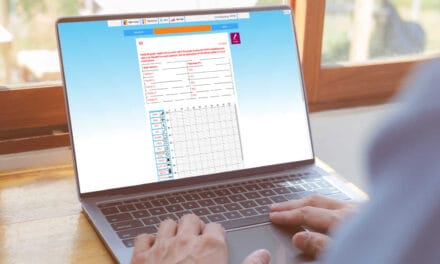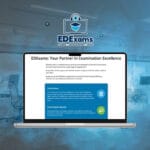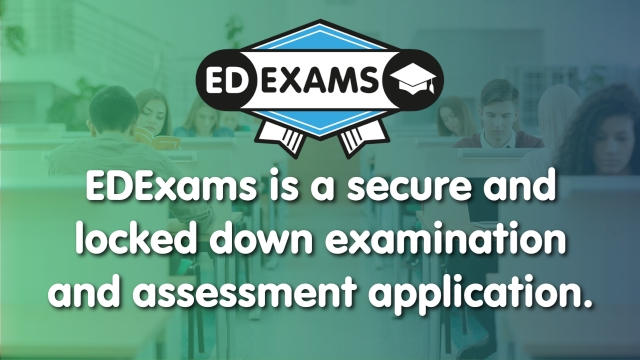The education sector should be making plans for digital exams to replace pen and paper assessments by 2025, according to an independent report.
The report suggests the UK is falling behind other countries in Europe, with many nations close to using 100% digital exams in education.
Some educational establishments are leading the way for digital assessment in the UK. But is this goal achievable? This blog post explains.
Paper exams ‘an administrative burden for teachers’
The calls for digital exams fits with the government’s EdTech Strategy. ‘Reducing teachers’ marking workload‘ is identified as one of the ten key educational challenges. Assessment can be ‘a source of dissatisfaction, frustration and anxiety’, according to the report.
Andy McGregor, Director of EdTech at Jisc, has said emerging technologies could transform student assessment.
“There is a real appetite for change in the UK education sector and many individuals are already exploring innovative new approaches,” said McGregor. “But widespread transformation doesn’t happen overnight and requires a change to the way data about assessment is collected and managed.
“Just as importantly, staff will need to be given time and space to experiment and develop confidence with new technology so it can be used to enhance assessment.”
The report states introducing exams eases ‘teachers’ marking and feedback workload, and provides quicker, more detailed and more actionable feedback for students.’
What are the benefits of digital exams?
By using technology to transform assessment, the exam process becomes more:
Authentic: Digital exams prepare the learner for what they are going to do next – testing knowledge and skills in a more realistic, contextualised and motivating way.
Accessible: Digital exams are built to be usable by everyone, including those with a long-term disability, short-term injury or mental health challenge.
Appropriately automated: The process eases teachers’ marking and feedback workload, and provides quicker, more detailed feedback to students.
Continuous: The process helps prepare students for lifelong learning, to adapt to changes in the world of work, rather than have pressure at just succeeding at one high-stakes exam.
Secure: It ensures that students are submitting their own work and adhering to rules.
“These five principles, underpinned by enhanced digital skills and confidence for staff, offer a holistic approach to more effective assessment,” says the report.
How can digital exams benefit pupils?
Nicole Stewart, cyber security degree apprentice, said:
I remember when I was taking my A-levels there were just tables laid out and it was quite uncomfortable and scary. My online exams are more secure because when my manager invigilates they are given a password on the day of the exam and the exam itself is locked until the time that the exam is sat.
How are digital exams used worldwide?
Digital exams already have a default place in many countries around the world. For example, accessibility is expected by default in Norwegian universities:
“Guidance issued to Norwegian universities recommends that solutions should be universally designed in order to be usable by everyone to the greatest possible extent, regardless of the user’s age or ability.”
In relation to digital assessment it recommends accommodating assisting technologies, including:
- Screen readers / magnifiers
- Refreshable braille displays and eye control
- An option for voice control of software and functionality
- Support for reading and writing (including speech synthesis)
- An audio-out option (e.g. with headphones)
- Language support for all of the official languages used in each country, including keyboard support for all the necessary characters, as a minimum
In India, digital exams are used on a massive scale. The Indian National Testing Agency (NTA) assessed almost 5.5 million candidates for entrance into leading education establishments. The exam is LAN based so is conducted on a computer but not online. The question paper is delivered in an encrypted format to every exam centre and is only decrypted when the candidate clicks on the paper. The order of multiple choice questions and answers will be randomised so that adjacent students are not presented with the same option.
How can EDExams be used for digital exams?
EDExams Limited specialise in the development of software specifically for the delivery of exams and assessments. It uses a lockdown protocol, so exam answers are submitted securely. EDExams was originally developed in August 2015 after one of the UK’s leading educational bodies expressed the need for an online functional skills platform. It is an application-based solution, used for production, administration, delivery, marking and reporting.
Assessments and examinations can be created using sophisticated and customisable workflows. Responses can be instantly marked or distributed securely for on-screen marking.
For more information on EDExams, click here.
Alternatively, call 01909 568 338 or request a demo here.











